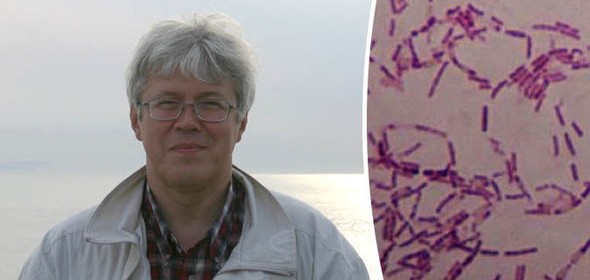Scientist Injects Himself With ‘Eternal Life’ Bacteria

In 2009, a 3.5-million-year-old bacteria strain called Bacillus F was discovered deep in the permafrost of Siberia’s Sakha Republic. Scientists later found that mice and fruit flies exposed to the bacteria seemed to get a boost to their immune systems, leading to longer lives and fertility even into old age.
So, naturally, Anatoli Brouchkov, the head of the geocryology department at Moscow State University, decided to take it a step further. “After successful experiments on [the] mice and fruit flies, I thought it would be interesting to try the inactivated bacterial culture on himself.
In effect, he’s making him a human guinea pig to see how what the newspaper calls “eternal life” bacteria protects against cell damage and may hold the key to longevity.
“I would say, there exist [in the world] immortal bacteria, immortal beings,” he tells Medical Daily. “They cannot die—to more precise, they can protect themselves.” He acknowledges to the Times that this “wasn’t quite a scientific experiment,” but he was super-curious how it would affect his health.
The results so far: He says he’s been feeling great. “I started to work longer, I’ve never had a flu for the last two years.” As for the possible dangers of injecting himself with bacteria that’s millions of years old? Brouchkov shrugs it off, noting that the Yakut people in the Sakha region are ostensibly exposed to the bacteria when the permafrost melts—and not only do they seem OK, but they “even seem to live longer than people in some other nations.” He adds further research is needed to see what mechanisms keep the bacteria alive and kicking.
Source: Jenn Gidman; Newser

 Print
Print